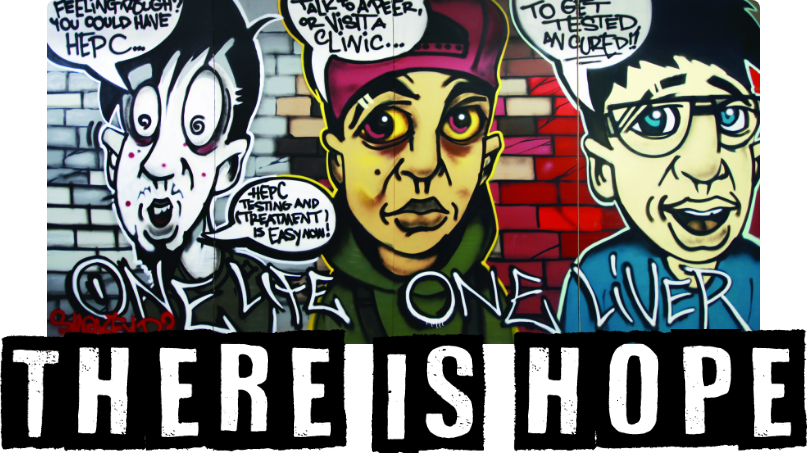Click to check out this custom hep C
mural by artist Smokey D!
The Vancouver Hep C Graffiti Project was done in collaboration with the BC Centre for Disease
Control (BCCDC), BC Hepatitis Network, and AbbVie
HEP C DOESN'T DEFINE YOUR FUTURE.
Click to check out this custom hep C mural by artist Smokey D!
The Vancouver Hep C Graffiti Project was done in collaboration with the BC Centre
for Disease Control (BCCDC), BC Hepatitis Network, and AbbVie























